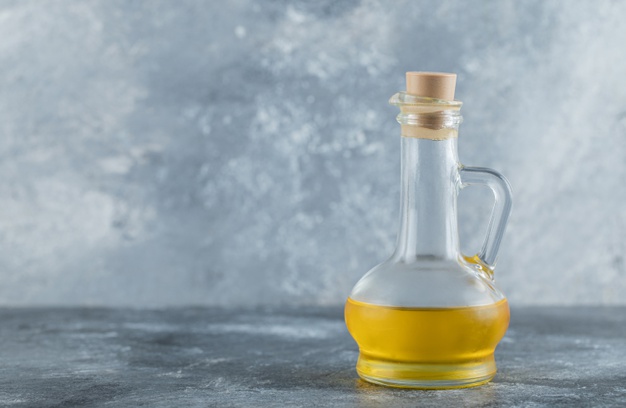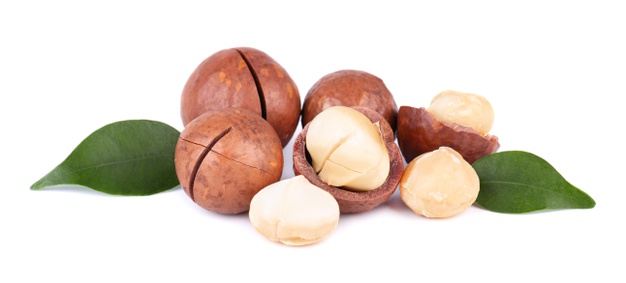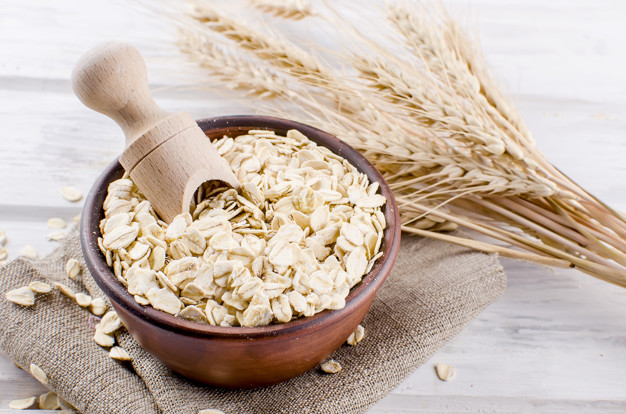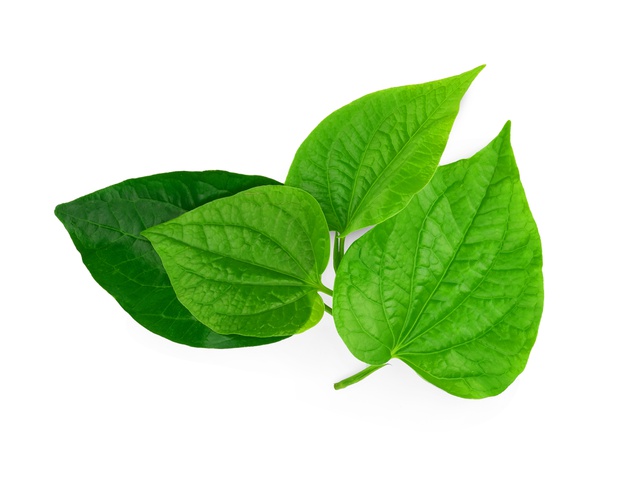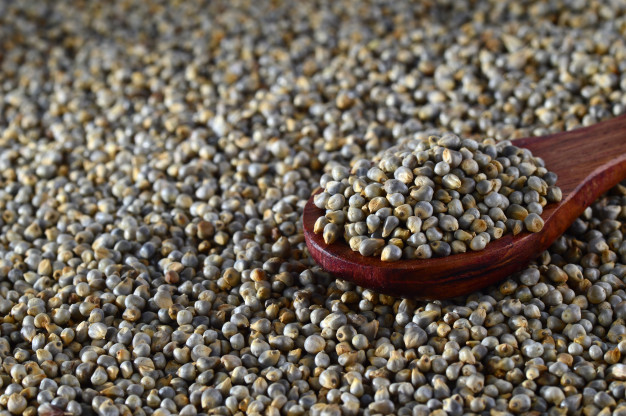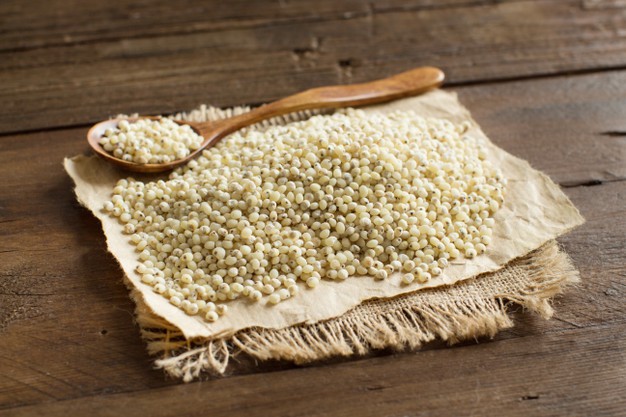Cottonseed oil is an important vegetable oil derived from cottonseed plant. It offers numerous health benefits but it also contains a toxin named gossypols, which may cause various health complications thus it is always better to use cottonseed oil in refined form.
Nutritional profile
- Cottonseed oil is composed of three fatty acids, which include saturated fatty acid, monounsaturated fatty acids and polyunsaturated fatty acids
- It mainly contains palmitic acid and stearic acid as saturated fatty acid whereas it mostly contains plamitoleic acid, oleic acid and linoleic acid as unsaturated fatty acid
- It contains a healthy ratio of saturated and unsaturated fatty acid
- It does not contain any trans fat
- It is significantly rich in Vitamin E, which helps to exert strong antioxidant activity
- Vitamin K and choline are also present in cottonseed oil in small extent
- It also contains phytosterol
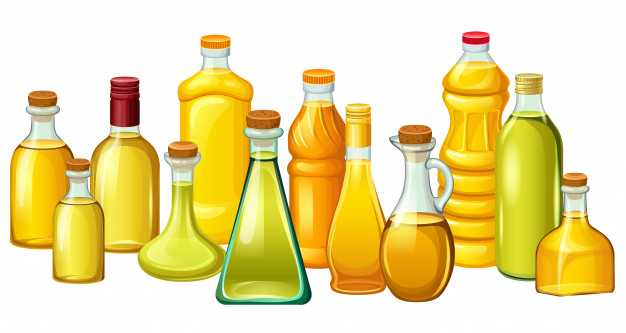
Biological activity
Antioxidant activity
- Its vitamin content especially Vitamin E content and phytosterol contents are responsible for exerting strong antioxidant activity
- It plays significant role in decreasing the amount of free radicals in body by scavenging them as a result it helps to protect the body from the harmful effects of free radicals
- It also helps to decrease the concentration of reactive oxygen species in body thus helps to protect DNA, RNA from damages
- It helps to decrease cellular damages as well by protecting all cells from oxidative damages
- It also helps to prevent the oxidation of various imperative biological substances of body, which ultimately lessen the risk of developing chronic diseases
- It helps to prevent lipid peroxidation as well

Anti-inflammatory activity
- Its monounsaturated fatty acid content is considered as the principal component that exerts anti-inflammatory activity
- It has seen that consumption of cottonseed oil or its application topically significantly decreases pain, joint swelling and headache
- It helps to improve the symptoms of arthritis as well as gout
- Consumption of this oil also helps to sooth stomach and protects the digestive tract from inflammatory damages thus it plays imperative role in reducing the susceptibility inflammatory bowel disease
Anti-carcinogenic activity
- It plays significant role in decreasing the prevalence of carcinoma as it helps to provide protection against carcinogens
- It is closely related with reducing the prevalence of prostate cancer by decreasing the growth of cancerous prostate tissue and also helps to decrease prostate enlargement
- Cottonseed oil is also associated with suppressing the growth of those malignant cells, which are resistant to multiple drugs
- It helps to inhibit the growth of tumor cell as well
- It also helps to reduce the prevalence of breast cancer

Health benefits
Role on immunity
- It helps to strengthen the defense mechanism of body and also improves the body’s ability to fight against various pathogens as well as foreign bodies
- It also helps in improving immunological responses of body
Role on nervous system
- It plays vital role in boosting up the health and functionality of nervous system
- Its antioxidant activity is responsible for protecting neurons from oxidative damages, which decreases the prevalence of various neurological disorders especially dementia
- It also helps to decrease inflammation within neural pathway
- It has seen that consumption of cottonseed oil is related with inhibiting beta-amyloid plaque deposition, which ultimately helps to keep an individual sharp
- Its monounsaturated and polyunsaturated fatty acid contents play imperative role in improving cognition
- It helps to improve memory as well
Role on wound healing
- Its antioxidant activity and Vitamin E component are accountable for accelerating healing process as they help to stimulate the growth of new cells and tissues at the site of wound
-
 Cottonseed oil can be applied on cuts or wounds or scratches or scrapes for rapid healing and it also protects the site of wound from infection or sepsis
Cottonseed oil can be applied on cuts or wounds or scratches or scrapes for rapid healing and it also protects the site of wound from infection or sepsis
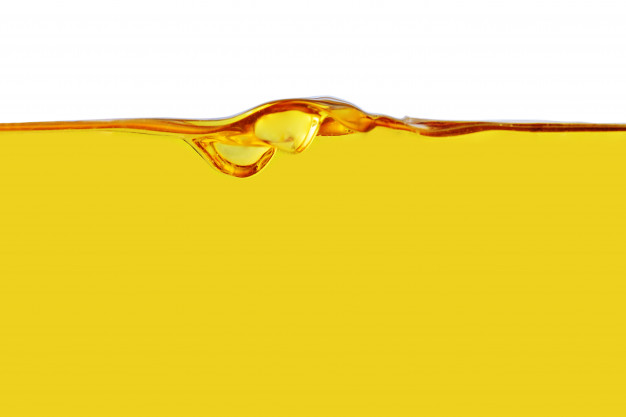
Role on regulating cholesterol level
- Cottonseed oil is loaded with phytosterols that play imperative role in decreasing cholesterol concentration
- Phytosterols are basically phytosteroids found in plants, which look like cholesterol
- Phytosterol is responsible for decreasing the synthesis of cholesterol within body and it also helps in limiting the amount of cholesterol, which is able to enter into the body, thus helps in reducing the total blood cholesterol concentration
- It has seen that it helps to reduce the level of LDL or bad cholesterol in body on a contrary it helps to increase the concentration of HDL or good cholesterol
- Individual suffer from hypercholesterolemia or individual with elevated lipid profile should include cottonseed oil in their diet
- Its hypocholesterolemic effect is also responsible for reducing the prevalence of metabolic syndrome
Role on cardiac health
- Unsaturated fatty acid (both MUFA and PUFA) contents of cottonseed oil help to promote cardiac health and functionality
- It helps to protect the heart from oxidative damages and also helps to delay the onset of cardiac inflammatory events thus reduces the susceptibility of developing cardio vascular diseases
- Its cholesterol lowering effect is also responsible for preventing fat deposition or plaque formation within blood vessels hence reduces the prevalence of atherosclerosis and coronary artery disease
- Consumption of cottonseed oil also helps to decrease hypertension
- It significantly reduces the risk of strokes or heart attacks

Role on skin
- Its Vitamin E content, unsaturated fatty acid contents and antioxidant activity play significant role in boosting up overall skin health
- Topical application of cottonseed oil is extremely useful for promoting skin health as they help to nourish the skin
- Some fatty acid components of cottonseed oil are responsible for increasing the permeability of skin as a result it help the skin to absorb various ingredients in better way
- It also helps to moisturize the skin thus play significant role in improving the appearance of skin
- It helps to prevent premature aging as well
- It helps to reduces the prevalence of wrinkles, scars and blemishes
- Its anti-inflammatory property is also accountable for protecting the skin from damages
Role on hair
- It helps to improve hair health
- It is associated with providing proper nourishment to hair that ultimately promotes hair growth
- It also helps to decrease hair falls
Culinary uses
It has longer shelf life. Its fatty acid composition is responsible for making it more stable than other cooking oils. It is extensively used for several culinary uses, such as –

- It is used for preparing cookies
- It can also be used for preparing potato chips
- It can be used for baking purposes as well
- It can also be used for deep frying purposes
- It can be used for salad dressing
- It can also used for preparing margarine and mayonnaise
Other uses
- Its fatty acid contents and Vitamin E contents make it an imperative ingredient for various skin care products like cream, body lotion, after-sun cream etc
- It is also used in shampoo especially in anti-dandruff shampoo
- Previously it was used in oil lamps too
- It is also used for preparing candles
- It is used in laundry detergents as well
- It also used for synthesizing insecticides
Risk factors
Too much consumption of cottonseed oil is harmful due to its gossypol content as accumulation of gossypolas in body in higher extent may cause various health hazards, like –
- Allergies
- Infertility
- Anorexia
- Respiratory distress
- Hepatic disorders
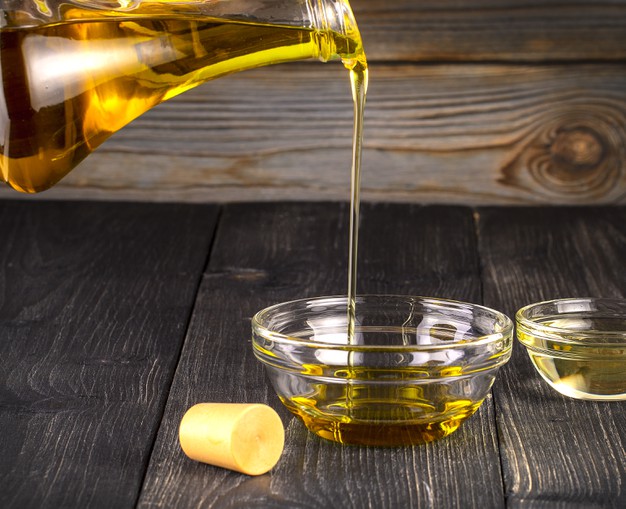
Source:
Daniel, D.R., Thompson, L.D., Shriver, B.J., Wu, C.K. and Hoover, L.C., 2005. Nonhydrogenated cottonseed oil can be used as a deep fat frying medium to reduce trans-fatty acid content in French fries. Journal of the American Dietetic Association, 105(12), pp.1927-1932.
Kumar, M., 2019. Paruthi Paal, a nutrient-rich healthy drink from cottonseed: an Indian delicacy. Journal of Ethnic Foods, 6(1), pp.1-6.
Park, J.S., Choi, J., Hwang, S.H., Kim, J.K., Kim, E.K., Lee, S.Y., Lee, B.I., Park, S.H. and Cho, M.L., 2019. Cottonseed oil protects against intestinal inflammation in dextran sodium sulfate-induced inflammatory bowel disease. Journal of medicinal food, 22(7), pp.672-679.
Sekhar, S.C. and Rao, B.V.K., 2011. Cottonseed oil as health oil. Pertanika J. Trop. Agric. Sci, 34(1), pp.17-24.
Sihag, M.K., Patel, A. and Kumar, V., 2021. Cottonseed (Gossypium hirsutum). In Oilseeds: Health Attributes and Food Applications (pp. 73-92). Springer, Singapore.
Sun, W., Shahrajabian, M.H., Khoshkharam, M., Shen, H. and Cheng, Q., 2020. Cultivation of cotton in China and Iran with considering biological activities and its health benefits. Cercetari Agronomice in Moldova, 1(181), pp.105-120.
